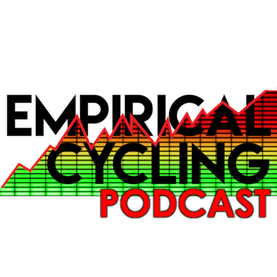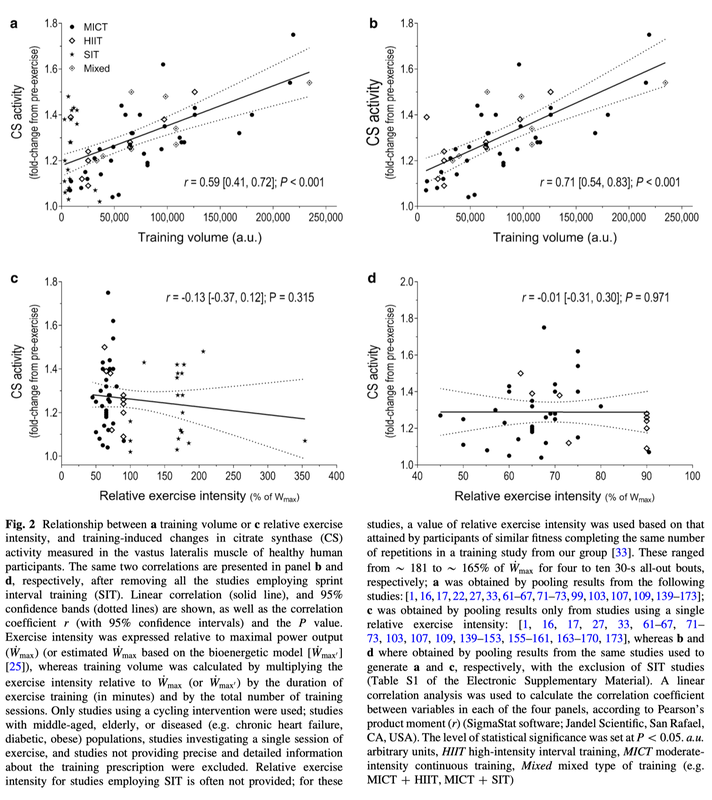|
Podcast merch!
Listen and subscribe: RSS FEED ITUNES Soundcloud Stitcher Spotify If the episodes below don't load, turn off your ad blocker. |
|
Retired professional road and cyclocross racer and newest Empirical Cycling coach Erica Zaveta joins to share wisdom from twenty years of competition and a decade of coaching. We discuss individualizing training for the high intensity disciplines of criteriums, cyclocross, and mountain biking, along with how and when to take mid season breaks, incorporating skills work, and adding practice crits and cyclocross practices to your program. Plus listener questions as always!
0 Comments
Kolie and Rory discuss their lists of the best things to do or avoid to maintain fitness in race season, and balance with appropriate rest. Also touched on are race prioritization, training and progression expectations, methods to estimate and manage fatigue, openers, volume vs intensity, and much more including your listener questions.
Coach and returning guest Marinus Petersen rejoins to discuss the pros and cons of different ways to quantify endurance and total training volume and adaptation. We consider TSS, total hours, and work measured in kilojoules, as well as coaching and programming aspects of endurance rides and balancing with interval sessions or races. We also answer your listener questions.
Show Notes Marinus Petersen Instagram
Professor Patrick Smith joins to discuss performance psychology, its role in cycling performance and everyday life, and some of the underlying themes and tools he uses in practice. We also discuss race nerves, negative spirals, some of the stigma around psychology in sports and overcoming it, defining the metrics of success, and more.
Show Notes Professor Patrick Smith website [email protected]
For this episode, Kolie and CTS coach Adam Pulford made lists of their most impactful coaching mistakes, how they recognized them, and their fixes. Lists include high intensity, training zones, communication, and more, plus things still ongoing. Also discussed is what makes a good coach, as well as your listener questions on the best coaching mistakes, fatigue management, trusting your coaching clients, and more.
Show Notes Coach Adam Pulford info: CTS Bio
In this episode we recap the big lessons from the last Watts Doc episode and revisit pacing endurance rides in terms of RPE, power, and heart rate, and finding that first threshold. Then we spend a long while considering how to program endurance rides into low, medium, and high volume weeks which we roughly block into <10h, about 15h, and >20h and the considerations we have for each scenario. Then we answer your listener questions on HR zones, the talk test, fueling endurance rides, cadence, whether you should do the occasional high volume week when the opportunity arises, and more.
We dig deep into a meta analysis' findings on the difference in muscular adaptations between training intensity and volume, especially what we can differentiate between continuous moderate intensity, HIIT, and sprint interval training. We also discuss the paper's findings on one aspect of "mitochondrial function", bullet point some practical takeaways, and answer your listener questions.
Show Notes Holloszy paper (one of many) Training-Induced Changes in Mitochondrial Content and Respiratory Function in Human Skeletal Muscle
Whether you have a coach or are self-coached, leaving workout feedback helps to ensure you're getting the most out of your training plan and coaching. In this episode we discuss what kind of feedback to leave on what topics (like RPE, nutrition, sickness, sleep, etc), appropriate level of detail, and how we as coaches find it useful plus what we do with the information. We also answer your listener questions.
This is an in depth discussion on the upsides and downsides of always training to raise FTP vs holding it longer. After defining terms, we discuss the training required, adaptation timelines, fatigue, long term development, plus coaching and event specific considerations. We also consider a few counterpoints for each kind of training, individual response and needs, whether or not this is an actual debate, and answer your listener questions.
This episode goes deep into the integral role that PGC-1ɑ plays in turning exercise signals into aerobic adaptation and improved endurance performance. We then dig into the very surprising results of studies that selectively knock out the PGC-1ɑ gene. Finally, we discuss potential uses of this knowledge for training applications and interpreting the literature, the actual best ways to know if your training (or training "hack") is working, and answering your listener questions.
Show Notes Three PGC-1ɑ reviews: PGC-1 coactivators: inducible regulators of energy metabolism in health and disease Transcriptional integration of mitochondrial biogenesis Mitochondrial regulator PGC-1a—Modulating the modulator - PMC Knockout studies: PGC-1α Deficiency Causes Multi-System Energy Metabolic Derangements: Muscle Dysfunction, Abnormal Weight Control and Hepatic Steatosis PGC-1α is Dispensable for Exercise-Induced Mitochondrial Biogenesis in Skeletal Muscle Adult expression of PGC-1α and -1β in skeletal muscle is not required for endurance exercise-induced enhancement of exercise capacity |
Archives
July 2024
Categories
All
|



 RSS Feed
RSS Feed